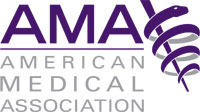Colorado Medical Society
http://dev.cms.org/articles/sgr-repeal/SGR repeal
Friday, May 01, 2015 12:18 PM
The sustainable growth rate (SGR) formula is no more. Thanks to new legislation adopted Tuesday, April 14, Medicare patients and the physicians who care for them no longer will be threatened by the flawed payment formula that left the Medicare program unstable and threatened access to care.
Following years of advocacy by the nation’s physicians standing up for their patients and their practices, the U.S. Senate followed the U.S. House of Representatives’ lead and passed a bill to immediately repeal the SGR formula.
The Medicare Access and CHIP Reauthorization Act was adopted by a vote of 92 – 8 on the eve that a 21 percent cut to physicians’ Medicare payments was set to take place. Instead, the bill provides positive annual payment updates of 0.5 percent, starting July 1 and lasting through 2019. Claims that were held for the first half of April will be processed and paid at the rates that were in place before the 21 percent cut was scheduled to take effect.
“Passage of this historic legislation finally brings an end to an era of uncertainty for Medicare beneficiaries and their physicians – facilitating the implementation of innovative care models that will improve care quality and lower costs,” American Medical Association Executive Vice President and CEO James L. Madara, MD, said in a statement. “Patients will be able to get the care they need and deserve.”
In addition to addressing Medicare payment, the legislation outlines several provisions that should be beneficial for physicians, including:
- Medicare’s current quality reporting programs will be streamlined and simplified into one merit-based incentive payment system, referred to as “MIPS.” This consolidation will reduce the aggregate level of financial penalties physicians otherwise could have faced.
- Protections are included so that medical liability cases cannot use Medicare quality program standards and measures as a standard or duty of care.
- Incentive payments will be available for physicians who participate in alternative payment models and meet certain thresholds.
- Technical support will be provided to help smaller practices participate in alternative payment models or the new fee-for-service incentive program.
- While the bill supports physicians who choose to adopt new payment and delivery models, it also retains Medicare’s fee-for-service model. Participation in new models is entirely voluntary.
The legislation takes an important first step by eliminating the SGR formula, and the AMA has pledged to continue working to ensure that implementation bolsters the sustainability of physician practices and empowers physicians to provide the best possible care for patients.
Additional challenges physicians continue to face in the Medicare program include impractical requirements of the electronic health record meaningful use program, eliminating the Independent Payment Advisory Board and the costly transition to the ICD-10 code set.
As part of its Professional Satisfaction and Practice Sustainability initiative, the AMA strives to clear these roadblocks to improving the nation’s health.